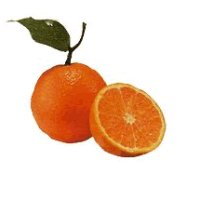Tangerine

  | Tangerine in TCM:Explore the properties of Tangerine according to Chinese
Nutrition and Traditional Chinese Medicine (TCM):
Temperature: warm
Channels: LU, ST, SP
Flavors: sweet, sour
Special Properties:
circulates qi, clears heat
In terms of Traditional Chinese Medicine (TCM) Tangerine is known for its ability to promote qi circulation and clear heat.
In general the ancient Chinese medical texts cite that it enters the Lung, Stomach, and Spleen. The flavor of Tangerine is sweet and sour, and it is considered to be cool in temperature.
Some sources state that tangerines are cool[2], but others state that tangerines are warm [22]. While the freshness and ripeness of a tangerine can affect its temperature, the editor of ChineseNutrition.org has chosen to agree with The Tao of Nutrition by Maoshing Ni.
Tangerines have the special properties to open the channels, stop cough, and strengthen the stomach. For pain or fullness in the chest or ribs combine tangerine fruit with rice wine and water to make a tea. For hernia with testicular pain roast equal parts of tangerine seeds and fennel seeds, grind to a powder, and take 3-6 grams with warm water before bed.
Tangerine peel is a Chinese herb [See also: Chen Pi]. Tangerine peel resolves phlegm and strengthens the stomach.
Disclaimer: In accordance with our terms of service, by using this web site you agree that none of the information found on this web site constitutes medical advice. You should always consult your doctor before trying any particular food or herbal remedy to treat disease.
Folk remedies presented on this site are designed to address specifc TCM diagnoses, and are not one-size-fits-all. If you would like to learn more about Traditional Chinese Medicine (TCM) and how it relates to Chinese Nutrition, you can book in a free call with a licensed professional. There is no obligation to purchase.
[CLICK HERE for your free INITIAL CONSULTATION] |

